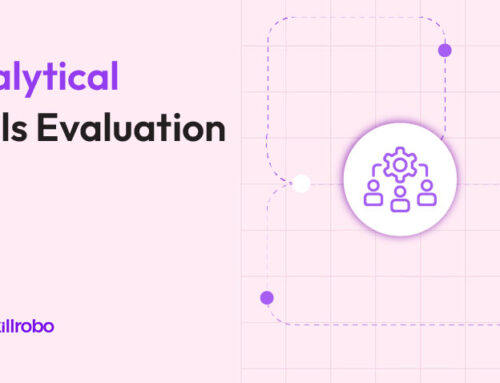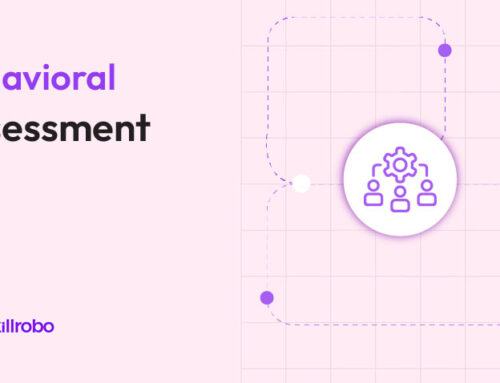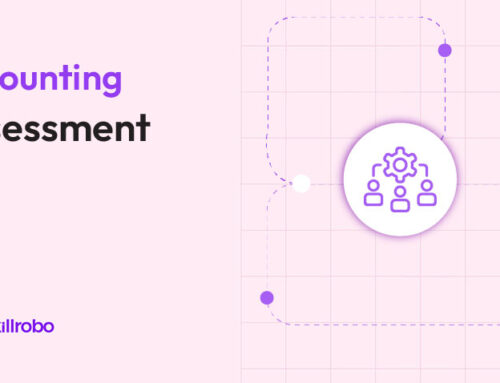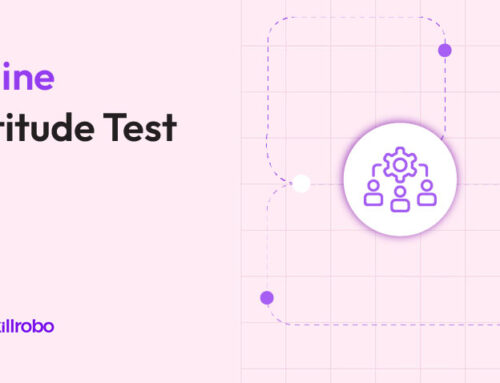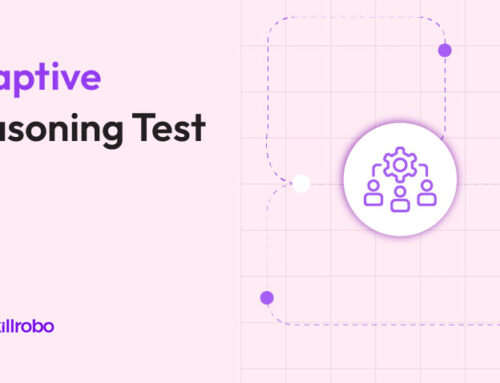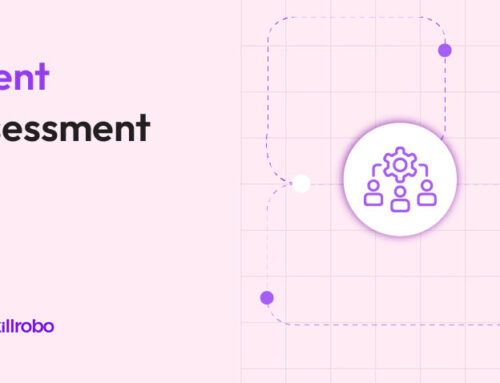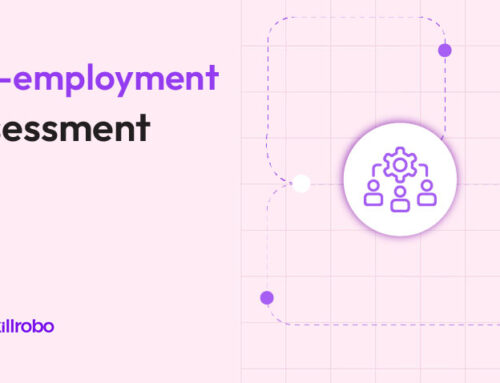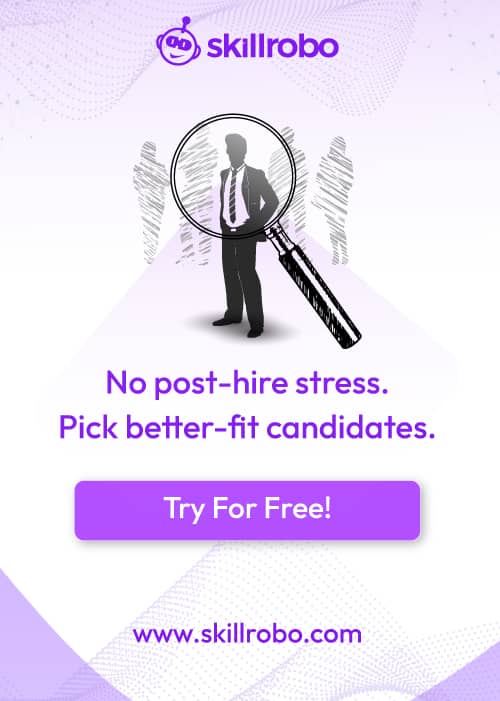Table of Contents
Related articles
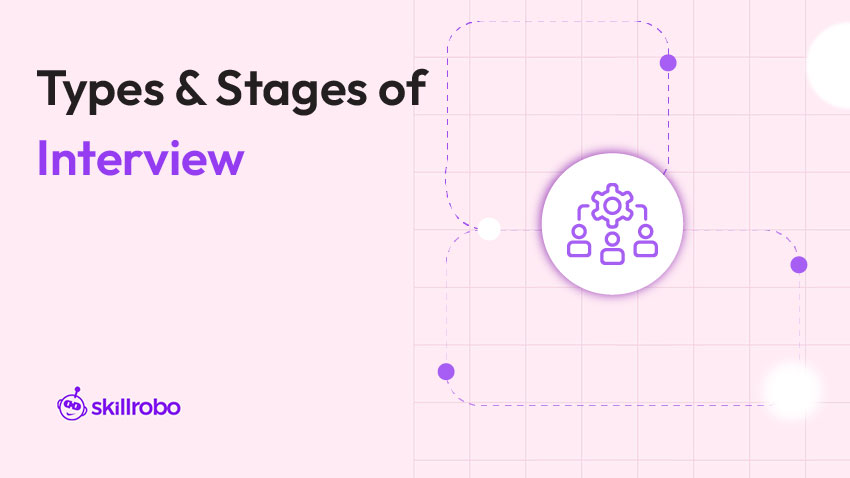
Key Takeaways
-
Modern recruitment methods use technology-driven platforms to assess candidates more efficiently, accurately, and at scale compared to conventional approaches.
-
Pre-employment assessment tools like Skillrobo help evaluate technical, behavioral, cognitive, and reasoning skills in a single platform.
-
Different interview techniques—from behavioral to stress and practical interviews—offer unique insights into candidate suitability based on role and industry.
-
Choosing the right interview format (video, in-person, group, or panel) depends on role complexity, geography, and resource availability.
Why Interviewing Isn’t One-Size-Fits-All
The one-size-fits-all doesn’t apply to the interviewing process. Over time, the recruitment team of an organization builds its own interview method. Interview techniques for employees followed by the hiring team are aligned with the cultural fabric of the organization. Some of the interviewers stick to conventional recruitment processes, while others incorporate modern recruitment methods in their hiring processes. In this blog, we explore modern recruitment methods, interview techniques, formats used by employers today, and the stages of an interview process.
Effectiveness of Modern Recruitment Methods
Recruitment may not be an exact science, there is no right or wrong way of recruiting new talent. However, sticking to conventional recruitment processes may slow down and render the hiring process ineffective. Modern recruitment methods leverage technology in order to cater to evolving market requirements and candidate expectations.
Conventional recruitment processes rely on subjective candidate evaluation methods like written evaluations and face-to-face interviews. Manually managed candidate assessments are ineffective for mass recruitment requirements as they are time-consuming and unscalable. Archaic candidate assessments focus only on technical skill evaluation, and the evaluation of soft skills is sidelined. Apart from being technically skilled, the candidate must have the right demeanor so that he/she fit well into the cultural fabric of the organization.
Modern recruitment techniques use candidate assessment software for effective and quick evaluation of candidates at scale. Screening of several candidate profiles can be done by the pre-screening test process by evaluating their technical, behavioural traits, cognitive ability, and reasoning abilities.
Here are 5 reasons why modern hiring methods are effective:
- Modern assessment platforms are equipped to evaluate several candidate profiles within a short duration of time.
- Candidate assessment platforms ensure holistic evaluation of candidates by including behavioral assessment tests, cognitive ability evaluations, logical and analytical reasoning ability assessment tests, and work simulations in the pre-employment screening.
- Technology-driven candidate assessment saves time and costs for the recruitment team.
- Candidate assessment software enables the hiring team to hire at scale.
- Instant reports and analytics at the end of the test are shared with the hiring team to make informed hiring decisions.
Pre-employment assessment platforms are a great way to determine the skill gap in the workforce. Administering the skill assessments on employees helps in planning the training and development programs to bridge the skill gap.
Types of Interview Techniques
The interview techniques followed during the recruitment process vary depending on what the employers are trying to assess. Interviews are meant to give you insights into the candidate’s skills and competencies so you can make informed hiring decisions. Different roles and skills govern the kind of interviews that employers need to run.
1. Conversational Interview
This is the most popular interview type. Conversational interviews aim at striking a casual conversation with the candidate about the role. Before a conversational interview, the interviewer would go through the candidate’s CV so that they are familiar with the candidate’s skills, experience, and competencies. This is often the final step in the recruitment process. This is also referred to as an informational interview.
2. Behavioural Interviews
Behaviour-based interview (BBI) is used for assessing how candidates handle work-related situations. Psychological evaluation crept into the recruitment process in the 1970s. Behavioral interviews are now an integral part of the hiring process. The past performance of the candidate can be assessed in a more specific format through behavioural interviews. Interviewers ask questions that go into specific details on how the candidate handled a situation in the past, and the thought process behind the course of action.
3. Direct Interview
This interview technique is particularly useful when you need to compare the performance of a large number of candidates. In this technique, the same set of questions is asked to all candidates, and their responses are compared. Some recruiters, however, discount the effectiveness of this technique in the qualitative aspect of evaluation. This technique is usually used in the first round of the interview process or as part of the written test in the initial job application.
4. Stress Interviews
As the name suggests, the stress interview evaluates the candidate’s response/reaction to stressful or pressure situations. In extreme stress interview situations, the candidate may end up crying or rushing out of the room, or even withdrawing their job application. Okay! That was taking things a bit too far! The point is that stress interviews are designed to deliberately put candidates in a stress situation to gauge their ability to handle work challenges, multi-task, innate personality, and problem-solving skills.
5. Practical Interview
Practical interview rounds are especially used in software companies where simple conversational interviews will not provide clear insights into candidate competencies. Practical interviews are commonplace in technical industries that require specialists to be hired. The candidate’s response to practical interview questions will throw light on their past performance and their confidence to take up new work challenges. Typical questions in practical interviews present a technical real-life problem that has several solutions. The candidate is given a time limit to come up with a solution to the technical question.
Each of the above interview techniques has its pros and cons and provides insights into various technical and behavioural aspects of the candidate. Employers must choose the technique that works best for the role for which the candidate is being considered, the work environment, and the organizational culture.
Types of Interview Formats
The format of conducting an interview depends on the industry, role, and geography. The interviewer chooses the interview format based on these factors. The common formats of conducting interviews are:
1. Telephonic or Video Call Interviews
This format reveals the presence of mind, communication skills, and responsiveness of the candidate. It is faster and transcends geographic boundaries. The cons are that poor network connectivity affects the quality of the interview, and candidates may not take it seriously as opposed to an in-person interview.
2. Candidate Assessment Platforms
Pre-employment skill assessment platforms help evaluate talent on multiple skill sets and competencies. Ideal for screening large groups of candidates and freshers. Cons are that the best talent may be missed in mass screening, and it requires more planning.
3. Face-to-face Interview
This format is a thorough evaluation of the candidate’s skills, attitude, and other soft skills. The cons are that interviewer bias may affect the result, and lack of standardization in assessment.
4. Group interviews
This format is fast and effective for mass assessments and can be conducted by less qualified recruiters, too. The cons are that the best candidate may get missed out, and more planning and manpower are needed.
5. Interview Panel
Multiple recruiters assess a candidate simultaneously on separate sets of parameters. Getting interviewed by a panel makes the candidate feel more valued. The cons are that it is a high-involvement and resource-consuming process, and the chances of disagreement in the panel are higher.
The Interview Process Rounds
The interview rounds required for the role are decided by the recruitment team based on the seniority of the position, the experience level of the candidate, the availability of the interviewer/panel, and the effort/resources required for interviewing. The lower the role and skill level, the higher the number of rounds.
- 5 Interview rounds are conducted for fresh graduates and entry-level jobs. The first round is assessment tests consisting of aptitude, cognitive ability, and behavioural assessments. This assessment is exhaustive and provides a complete picture of the candidate’s ability.
- 4 interview rounds comprise pre-screening tests, aptitude or domain tests, HR interviews, and a hiring manager interview. This process provides quick results but fails to include a behavioural assessment that may cause higher attrition rates.
- 3 interview rounds are followed for hiring experienced candidates who are chosen for their skills and abilities.
Interview rounds for software companies vary between 5 to 3 rounds, depending on the role for which the candidate is being hired and the organization. Now let’s take a closer look at the stage one by one.
The Stages in the Interview Process
A structured interview process helps streamline hiring, reduce bias, and ensure that every candidate is evaluated consistently. While the number of stages may vary depending on the company, role, and industry, most recruitment workflows follow a similar multi-stage process to ensure comprehensive evaluation.
1. Pre-Screening Assessment
This is the first stage where candidates are evaluated using skills assessment tests or behavioral questionnaires. These tests help recruiters shortlist candidates based on technical knowledge, cognitive abilities, and role-specific traits, ensuring only qualified individuals move forward.
2. Initial HR Screening
In this round, HR professionals conduct a brief conversation to validate basic qualifications, understand the candidate’s expectations, and assess communication skills. This is also an opportunity to confirm salary expectations and availability.
3. Technical or Functional Interview
Conducted by subject matter experts or hiring managers, this round focuses on the candidate’s core competencies, project experience, and role-related technical skills. This stage may include live problem-solving, case studies, or role-based questions.
4. Behavioral Interview
To assess soft skills, emotional intelligence, and cultural fit, recruiters may use behavioral or situational questions. Responses are often evaluated using structured frameworks or employee evaluation software to ensure consistency and reduce bias.
5. Final Interview/Leadership Round
This is often the final step in the process, where senior leaders or department heads evaluate strategic thinking, leadership potential, and long-term alignment with company goals. For senior roles, this round may also include negotiation of compensation and responsibilities.
Why Choose Skillrobo for Smarter Hiring
Skillrobo is an AI-powered pre-employment assessment platform designed to help recruiters evaluate candidates across technical, behavioral, and cognitive dimensions. With customizable test templates, real-time analytics, and live proctoring, Skillrobo streamlines the hiring process and ensures data-driven decision-making. Whether you’re hiring at scale or for niche roles, Skillrobo offers a reliable, scalable solution to identify top talent quickly and accurately.
Conclusion
The interview techniques for employees may be chosen based on the demands of the role and the type of organization. The hiring team would choose the format of the interview based on resource availability and related factors. Pre-screening test processes bring down the time to hire and improve the quality of hire. Organizations looking to gain deeper insights into the candidate’s skills and competencies through pre-employment assessments must invest in candidate assessment software like Skillrobo.
Ready to enhance your hiring process? Sign up for Skillrobo and start assessing smarter, faster, and more efficiently.

Key Takeaways
-
Modern recruitment methods use technology-driven platforms to assess candidates more efficiently, accurately, and at scale compared to conventional approaches.
-
Pre-employment assessment tools like Skillrobo help evaluate technical, behavioral, cognitive, and reasoning skills in a single platform.
-
Different interview techniques—from behavioral to stress and practical interviews—offer unique insights into candidate suitability based on role and industry.
-
Choosing the right interview format (video, in-person, group, or panel) depends on role complexity, geography, and resource availability.
Why Interviewing Isn’t One-Size-Fits-All
The one-size-fits-all doesn’t apply to the interviewing process. Over time, the recruitment team of an organization builds its own interview method. Interview techniques for employees followed by the hiring team are aligned with the cultural fabric of the organization. Some of the interviewers stick to conventional recruitment processes, while others incorporate modern recruitment methods in their hiring processes. In this blog, we explore modern recruitment methods, interview techniques, formats used by employers today, and the stages of an interview process.
Effectiveness of Modern Recruitment Methods
Recruitment may not be an exact science, there is no right or wrong way of recruiting new talent. However, sticking to conventional recruitment processes may slow down and render the hiring process ineffective. Modern recruitment methods leverage technology in order to cater to evolving market requirements and candidate expectations.
Conventional recruitment processes rely on subjective candidate evaluation methods like written evaluations and face-to-face interviews. Manually managed candidate assessments are ineffective for mass recruitment requirements as they are time-consuming and unscalable. Archaic candidate assessments focus only on technical skill evaluation, and the evaluation of soft skills is sidelined. Apart from being technically skilled, the candidate must have the right demeanor so that he/she fit well into the cultural fabric of the organization.
Modern recruitment techniques use candidate assessment software for effective and quick evaluation of candidates at scale. Screening of several candidate profiles can be done by the pre-screening test process by evaluating their technical, behavioural traits, cognitive ability, and reasoning abilities.
Here are 5 reasons why modern hiring methods are effective:
- Modern assessment platforms are equipped to evaluate several candidate profiles within a short duration of time.
- Candidate assessment platforms ensure holistic evaluation of candidates by including behavioral assessment tests, cognitive ability evaluations, logical and analytical reasoning ability assessment tests, and work simulations in the pre-employment screening.
- Technology-driven candidate assessment saves time and costs for the recruitment team.
- Candidate assessment software enables the hiring team to hire at scale.
- Instant reports and analytics at the end of the test are shared with the hiring team to make informed hiring decisions.
Pre-employment assessment platforms are a great way to determine the skill gap in the workforce. Administering the skill assessments on employees helps in planning the training and development programs to bridge the skill gap.
Types of Interview Techniques
The interview techniques followed during the recruitment process vary depending on what the employers are trying to assess. Interviews are meant to give you insights into the candidate’s skills and competencies so you can make informed hiring decisions. Different roles and skills govern the kind of interviews that employers need to run.
1. Conversational Interview
This is the most popular interview type. Conversational interviews aim at striking a casual conversation with the candidate about the role. Before a conversational interview, the interviewer would go through the candidate’s CV so that they are familiar with the candidate’s skills, experience, and competencies. This is often the final step in the recruitment process. This is also referred to as an informational interview.
2. Behavioural Interviews
Behaviour-based interview (BBI) is used for assessing how candidates handle work-related situations. Psychological evaluation crept into the recruitment process in the 1970s. Behavioral interviews are now an integral part of the hiring process. The past performance of the candidate can be assessed in a more specific format through behavioural interviews. Interviewers ask questions that go into specific details on how the candidate handled a situation in the past, and the thought process behind the course of action.
3. Direct Interview
This interview technique is particularly useful when you need to compare the performance of a large number of candidates. In this technique, the same set of questions is asked to all candidates, and their responses are compared. Some recruiters, however, discount the effectiveness of this technique in the qualitative aspect of evaluation. This technique is usually used in the first round of the interview process or as part of the written test in the initial job application.
4. Stress Interviews
As the name suggests, the stress interview evaluates the candidate’s response/reaction to stressful or pressure situations. In extreme stress interview situations, the candidate may end up crying or rushing out of the room, or even withdrawing their job application. Okay! That was taking things a bit too far! The point is that stress interviews are designed to deliberately put candidates in a stress situation to gauge their ability to handle work challenges, multi-task, innate personality, and problem-solving skills.
5. Practical Interview
Practical interview rounds are especially used in software companies where simple conversational interviews will not provide clear insights into candidate competencies. Practical interviews are commonplace in technical industries that require specialists to be hired. The candidate’s response to practical interview questions will throw light on their past performance and their confidence to take up new work challenges. Typical questions in practical interviews present a technical real-life problem that has several solutions. The candidate is given a time limit to come up with a solution to the technical question.
Each of the above interview techniques has its pros and cons and provides insights into various technical and behavioural aspects of the candidate. Employers must choose the technique that works best for the role for which the candidate is being considered, the work environment, and the organizational culture.
Types of Interview Formats
The format of conducting an interview depends on the industry, role, and geography. The interviewer chooses the interview format based on these factors. The common formats of conducting interviews are:
1. Telephonic or Video Call Interviews
This format reveals the presence of mind, communication skills, and responsiveness of the candidate. It is faster and transcends geographic boundaries. The cons are that poor network connectivity affects the quality of the interview, and candidates may not take it seriously as opposed to an in-person interview.
2. Candidate Assessment Platforms
Pre-employment skill assessment platforms help evaluate talent on multiple skill sets and competencies. Ideal for screening large groups of candidates and freshers. Cons are that the best talent may be missed in mass screening, and it requires more planning.
3. Face-to-face Interview
This format is a thorough evaluation of the candidate’s skills, attitude, and other soft skills. The cons are that interviewer bias may affect the result, and lack of standardization in assessment.
4. Group interviews
This format is fast and effective for mass assessments and can be conducted by less qualified recruiters, too. The cons are that the best candidate may get missed out, and more planning and manpower are needed.
5. Interview Panel
Multiple recruiters assess a candidate simultaneously on separate sets of parameters. Getting interviewed by a panel makes the candidate feel more valued. The cons are that it is a high-involvement and resource-consuming process, and the chances of disagreement in the panel are higher.
The Interview Process Rounds
The interview rounds required for the role are decided by the recruitment team based on the seniority of the position, the experience level of the candidate, the availability of the interviewer/panel, and the effort/resources required for interviewing. The lower the role and skill level, the higher the number of rounds.
- 5 Interview rounds are conducted for fresh graduates and entry-level jobs. The first round is assessment tests consisting of aptitude, cognitive ability, and behavioural assessments. This assessment is exhaustive and provides a complete picture of the candidate’s ability.
- 4 interview rounds comprise pre-screening tests, aptitude or domain tests, HR interviews, and a hiring manager interview. This process provides quick results but fails to include a behavioural assessment that may cause higher attrition rates.
- 3 interview rounds are followed for hiring experienced candidates who are chosen for their skills and abilities.
Interview rounds for software companies vary between 5 to 3 rounds, depending on the role for which the candidate is being hired and the organization. Now let’s take a closer look at the stage one by one.
The Stages in the Interview Process
A structured interview process helps streamline hiring, reduce bias, and ensure that every candidate is evaluated consistently. While the number of stages may vary depending on the company, role, and industry, most recruitment workflows follow a similar multi-stage process to ensure comprehensive evaluation.
1. Pre-Screening Assessment
This is the first stage where candidates are evaluated using skills assessment tests or behavioral questionnaires. These tests help recruiters shortlist candidates based on technical knowledge, cognitive abilities, and role-specific traits, ensuring only qualified individuals move forward.
2. Initial HR Screening
In this round, HR professionals conduct a brief conversation to validate basic qualifications, understand the candidate’s expectations, and assess communication skills. This is also an opportunity to confirm salary expectations and availability.
3. Technical or Functional Interview
Conducted by subject matter experts or hiring managers, this round focuses on the candidate’s core competencies, project experience, and role-related technical skills. This stage may include live problem-solving, case studies, or role-based questions.
4. Behavioral Interview
To assess soft skills, emotional intelligence, and cultural fit, recruiters may use behavioral or situational questions. Responses are often evaluated using structured frameworks or employee evaluation software to ensure consistency and reduce bias.
5. Final Interview/Leadership Round
This is often the final step in the process, where senior leaders or department heads evaluate strategic thinking, leadership potential, and long-term alignment with company goals. For senior roles, this round may also include negotiation of compensation and responsibilities.
Why Choose Skillrobo for Smarter Hiring
Skillrobo is an AI-powered pre-employment assessment platform designed to help recruiters evaluate candidates across technical, behavioral, and cognitive dimensions. With customizable test templates, real-time analytics, and live proctoring, Skillrobo streamlines the hiring process and ensures data-driven decision-making. Whether you’re hiring at scale or for niche roles, Skillrobo offers a reliable, scalable solution to identify top talent quickly and accurately.
Conclusion
The interview techniques for employees may be chosen based on the demands of the role and the type of organization. The hiring team would choose the format of the interview based on resource availability and related factors. Pre-screening test processes bring down the time to hire and improve the quality of hire. Organizations looking to gain deeper insights into the candidate’s skills and competencies through pre-employment assessments must invest in candidate assessment software like Skillrobo.
Ready to enhance your hiring process? Sign up for Skillrobo and start assessing smarter, faster, and more efficiently.



